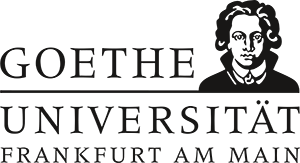The development of Islamic theological studies at German public universities marks a significant shift in how Islam is academically engaged with in the country. Traditionally, Islam was studied primarily through „Oriental Studies“ (Orientalistik) or Islamic Studies (Islamwissenschaft), both of which analysed Islam from an external, often secular perspective. These fields have made important contributions to the understanding of Muslim history, cultures, and languages. However, their approach tends to be descriptive and analytical, treating Islam as a subject of research rather than a lived faith tradition.
Islamic theology (Islamische Theologie), by contrast, engages with Islam from within the tradition, addressing theological questions and religious practice from a faith-based approach. Since then, both fields, the Islamic Studies (Islamwissenschaft) and the Islamic theology (Islamische Theologie) benefit from interdisciplinary collaboration, as theological studies draw on historical, cultural, and sociological research methods, while Islamic studies can gain from the theological insights provided by faith-based scholarship.
The establishment of the latter at German Universities began around 2010, when the German government supported the development of Islamic theology programs to provide homegrown religious education for the country’s growing Muslim population. Currently, Islamic theology is offered at several German universities, including the University of Frankfurt, of Tübingen, the University of Münster, and the University of Osnabrück. As of now, there are about 40 professorships in Islamic theology established across 10 public universities in Germany.
In Germany, there is no recognized, established Islamic academic institution for the study of Islam, similar, for instance, to the Islamic Colleges in the United Kingdom. Instead, there are only small training centers run by individual organizations to educate their respective religious personnel, such as those of the Ahmadiyya community or of the Turkish-Islamic Association of Islamic Cultural Centers (Verband islamischer Kulturzentren). For a comprehensive (faith-based) Islamic education at an academic level, interested German Muslims had to go abroad.
Similar to Christian theology at German universities, Islamic theology provides a space for Muslims to engage with their faith academically, e.g. by focusing on the interpretation of religious texts or the study of Islamic ethics and practical faith issues. But unlike the Christian churches there is no direct connections of the academic chairs or subject to the very diverse Islamic religious communities. Although there are structures in various federal states, such as advisory boards with members from the Muslim community, to connect the theological departments with Islamic communities, research, study, and the definition of its content largely take place without coordination with, or approval from the religious communities.
Founded in 2017, the Academy for Islam in Research and Society (Akademie für Islam in Wissenschaft und Gesellschaft, AIWG) at Goethe University Frankfurt plays a key role in fostering interdisciplinary and international collaboration in Islamic studies across Germany. The AIWG works to build bridges between academia, civil society, and the Islamic community, stimulating research and public dialogue on Islamic theology and Muslim issues and its relevance in contemporary society.
